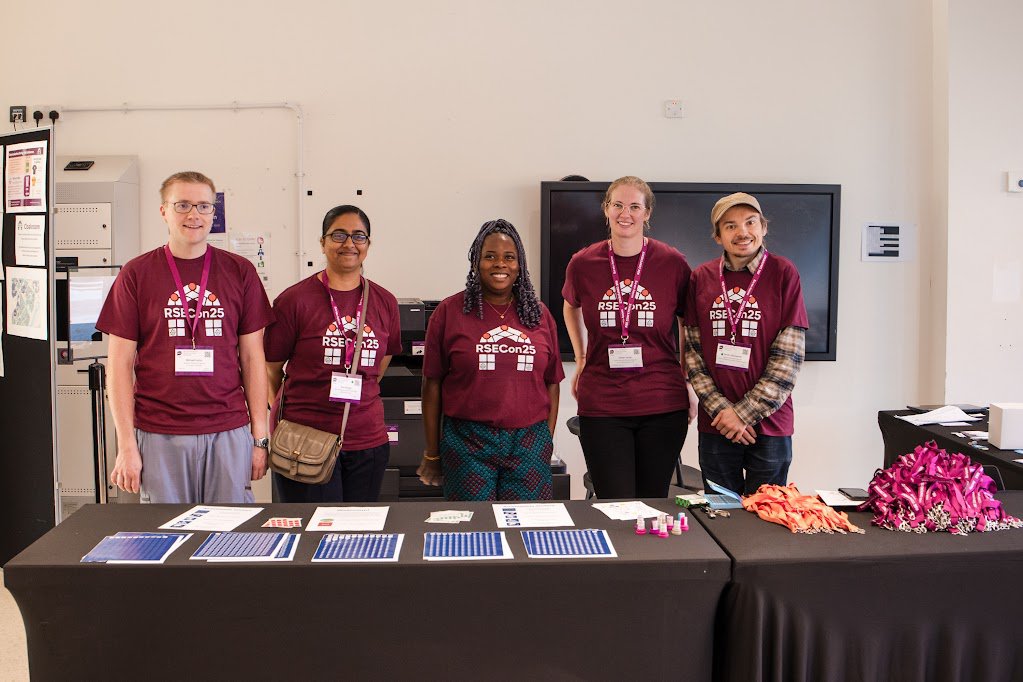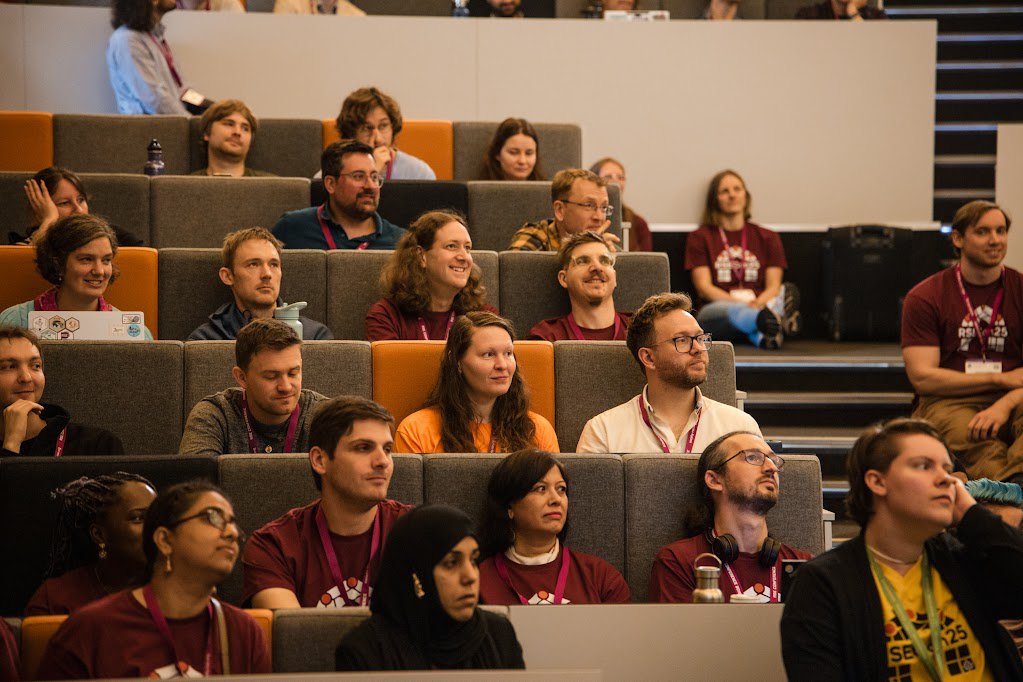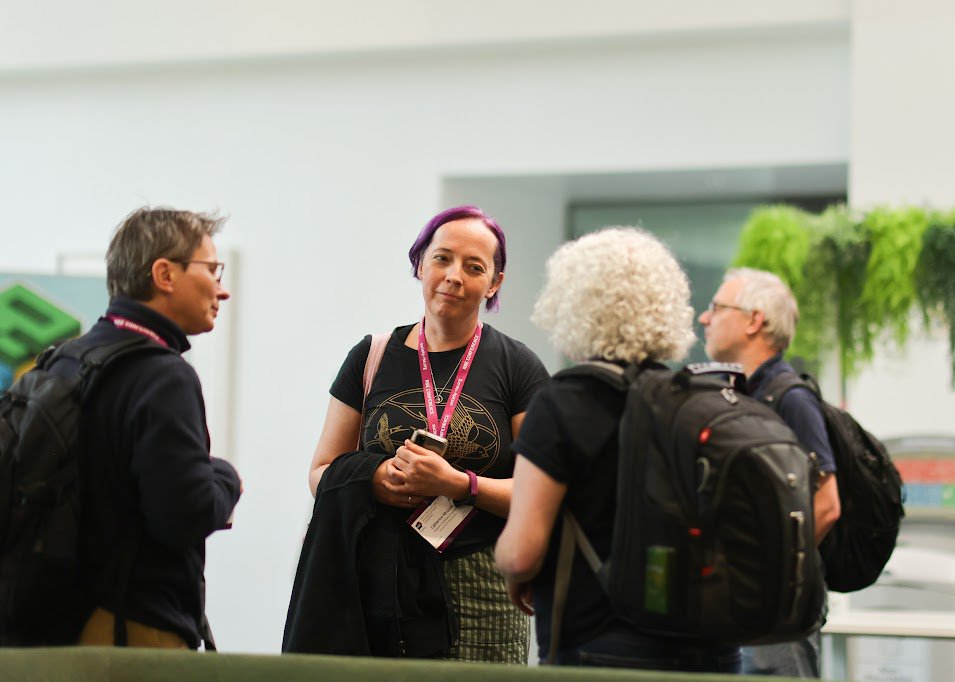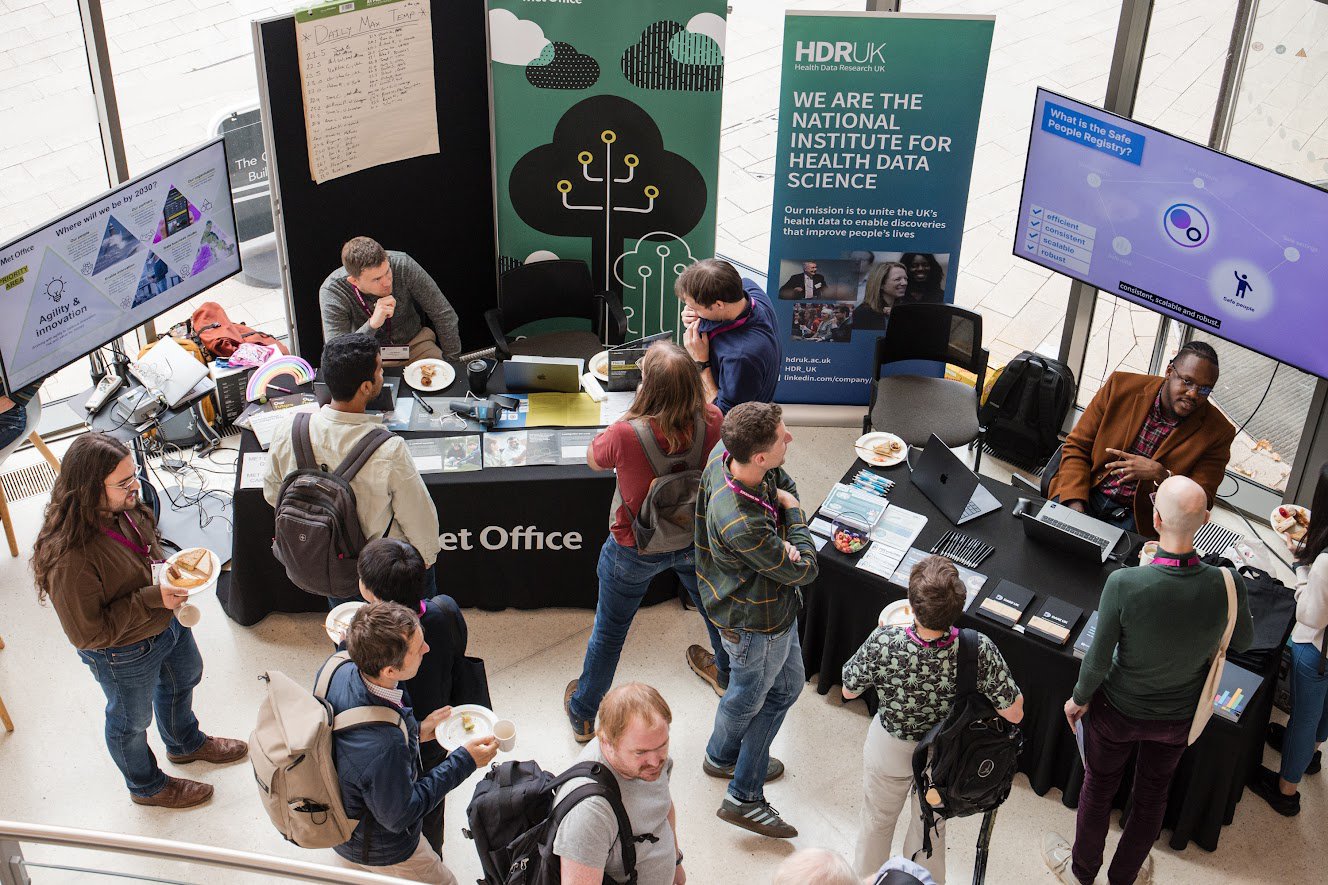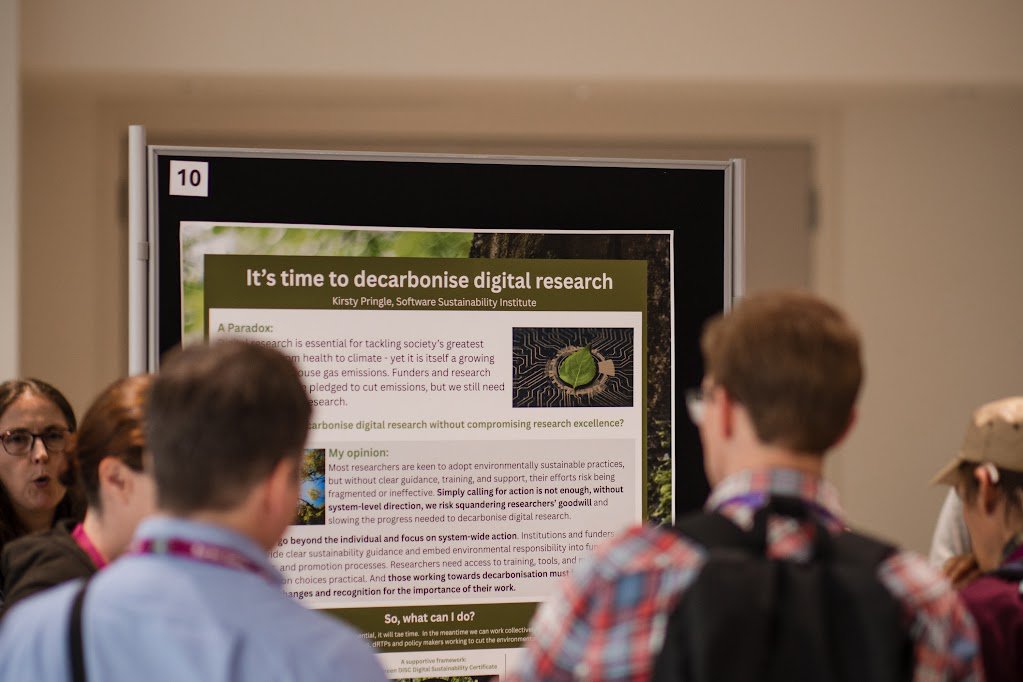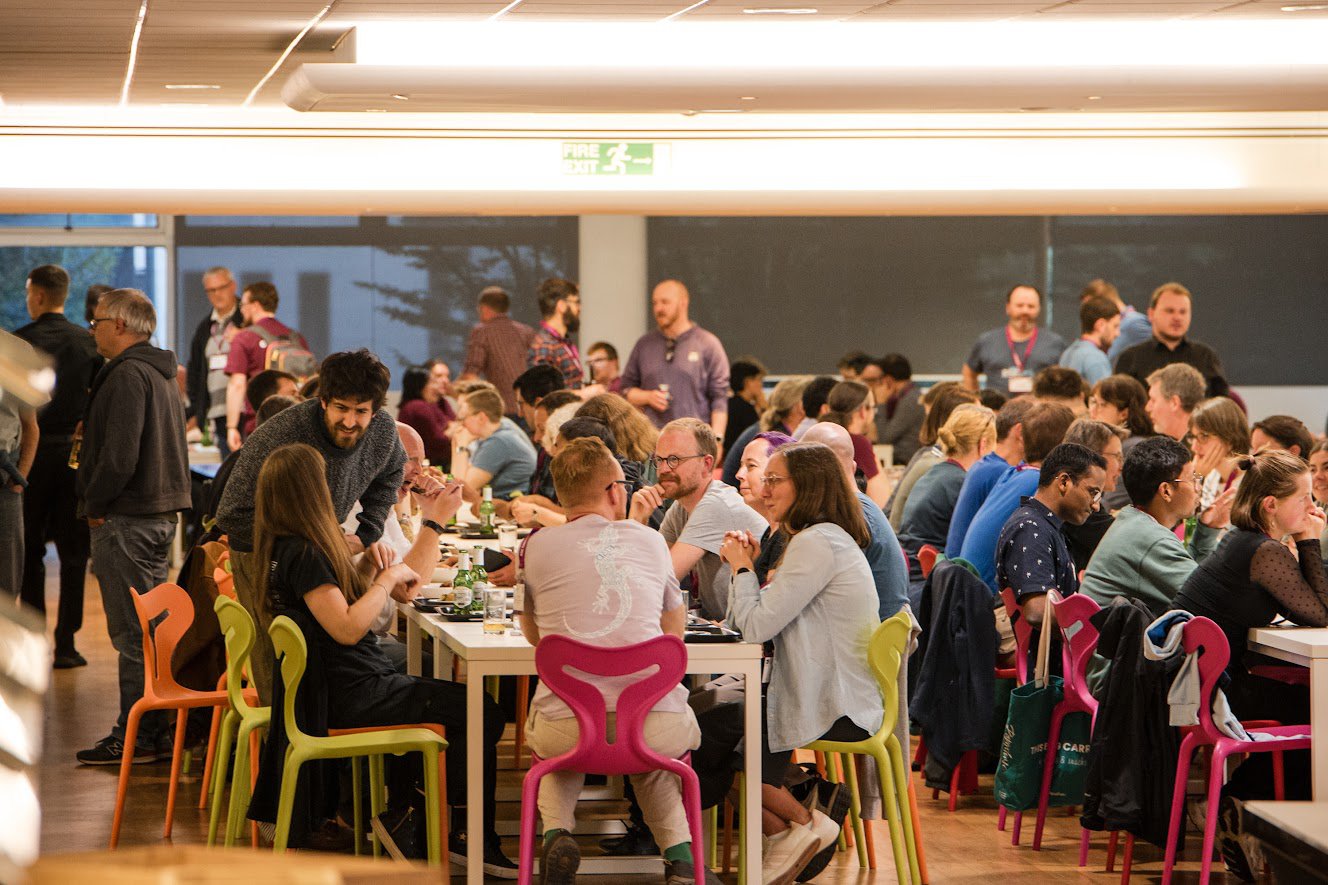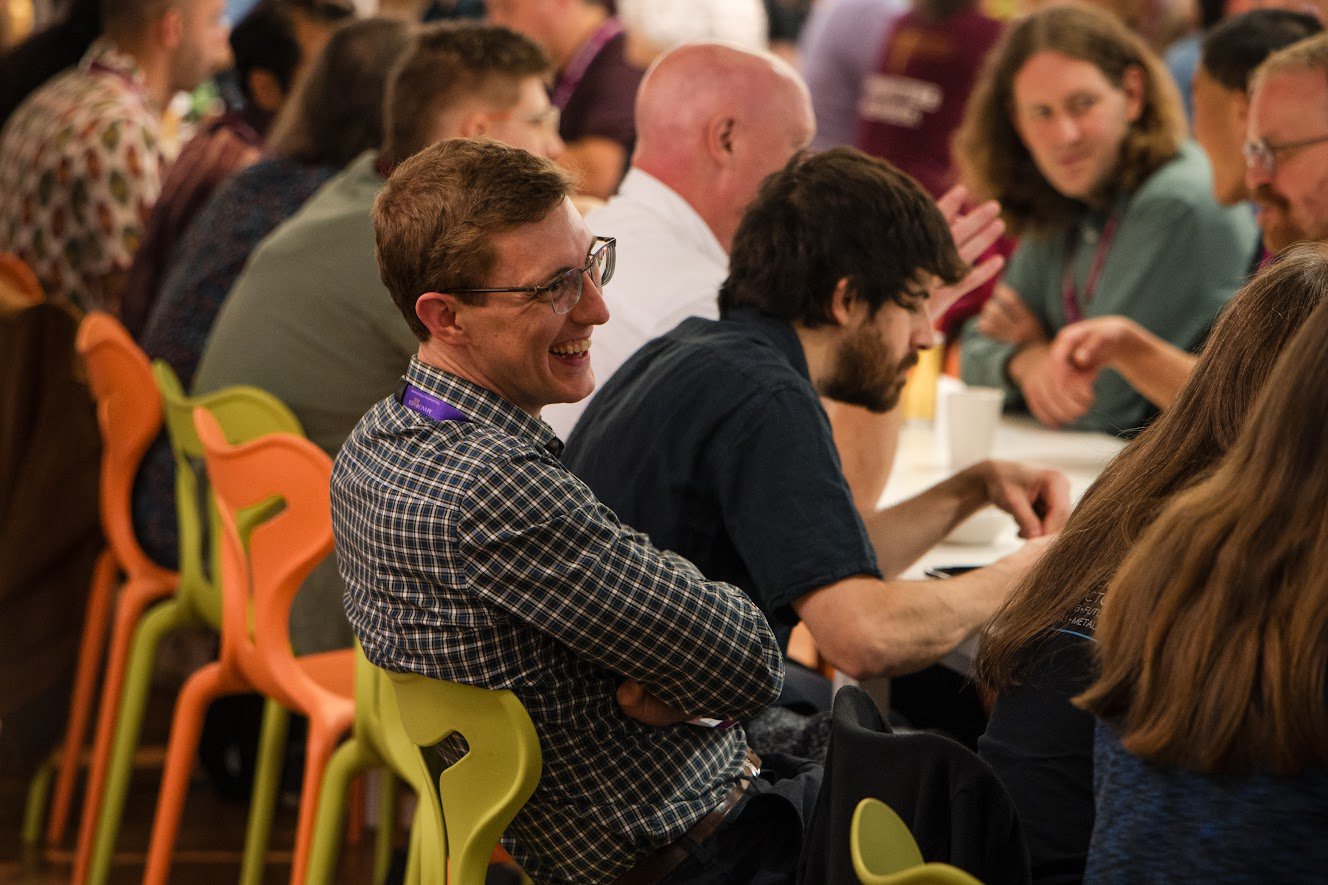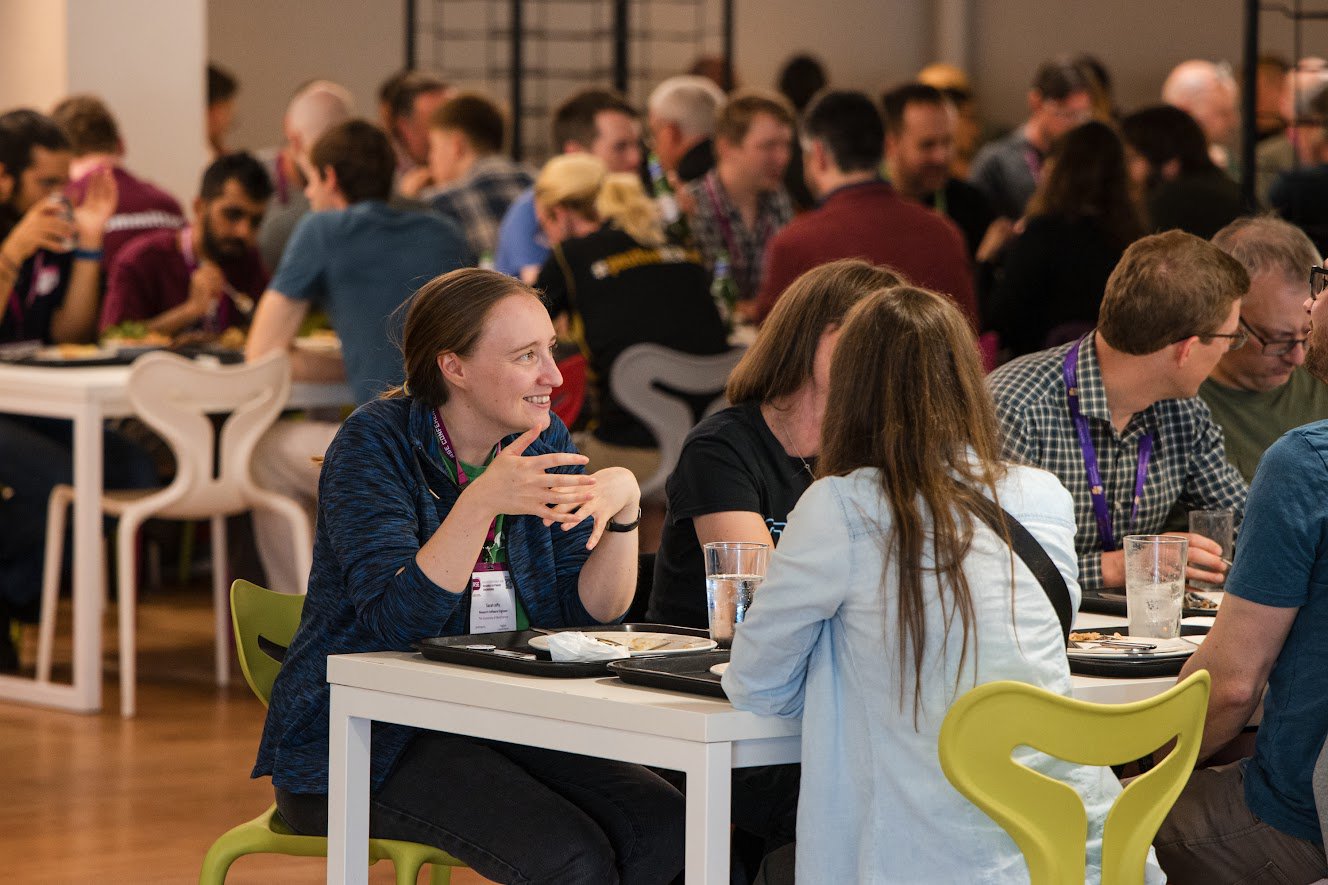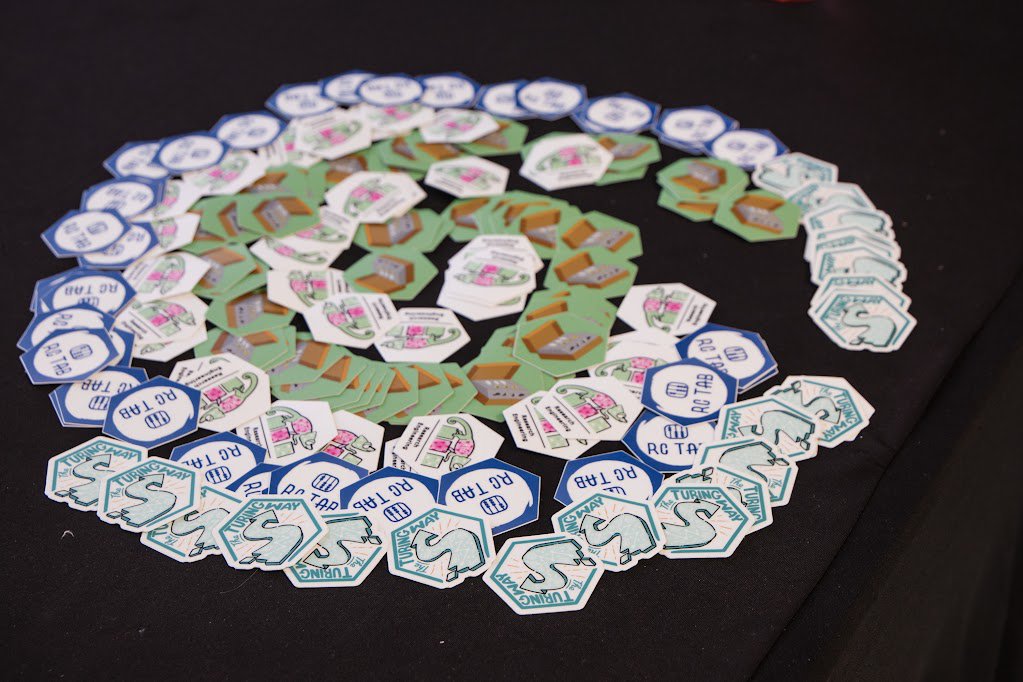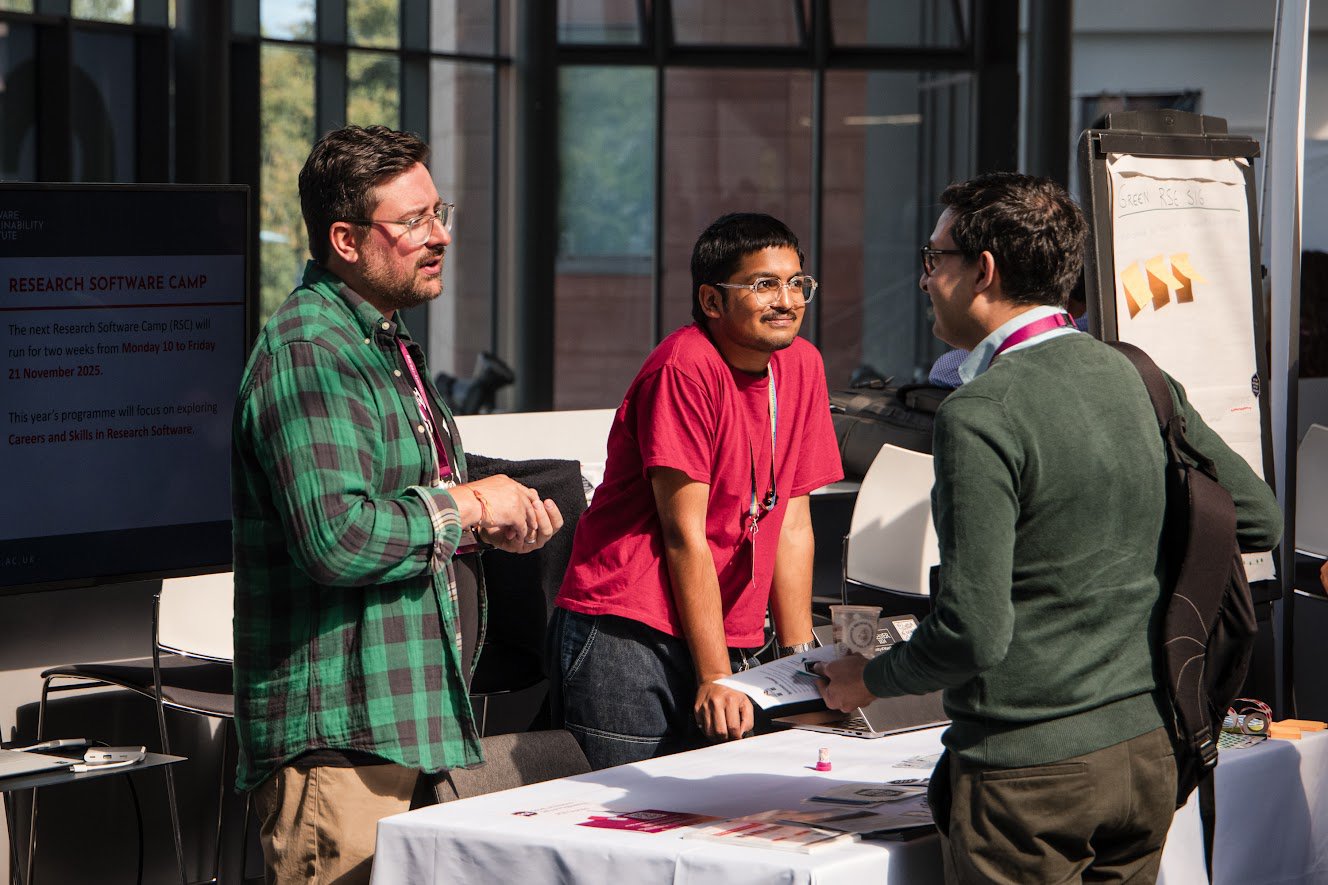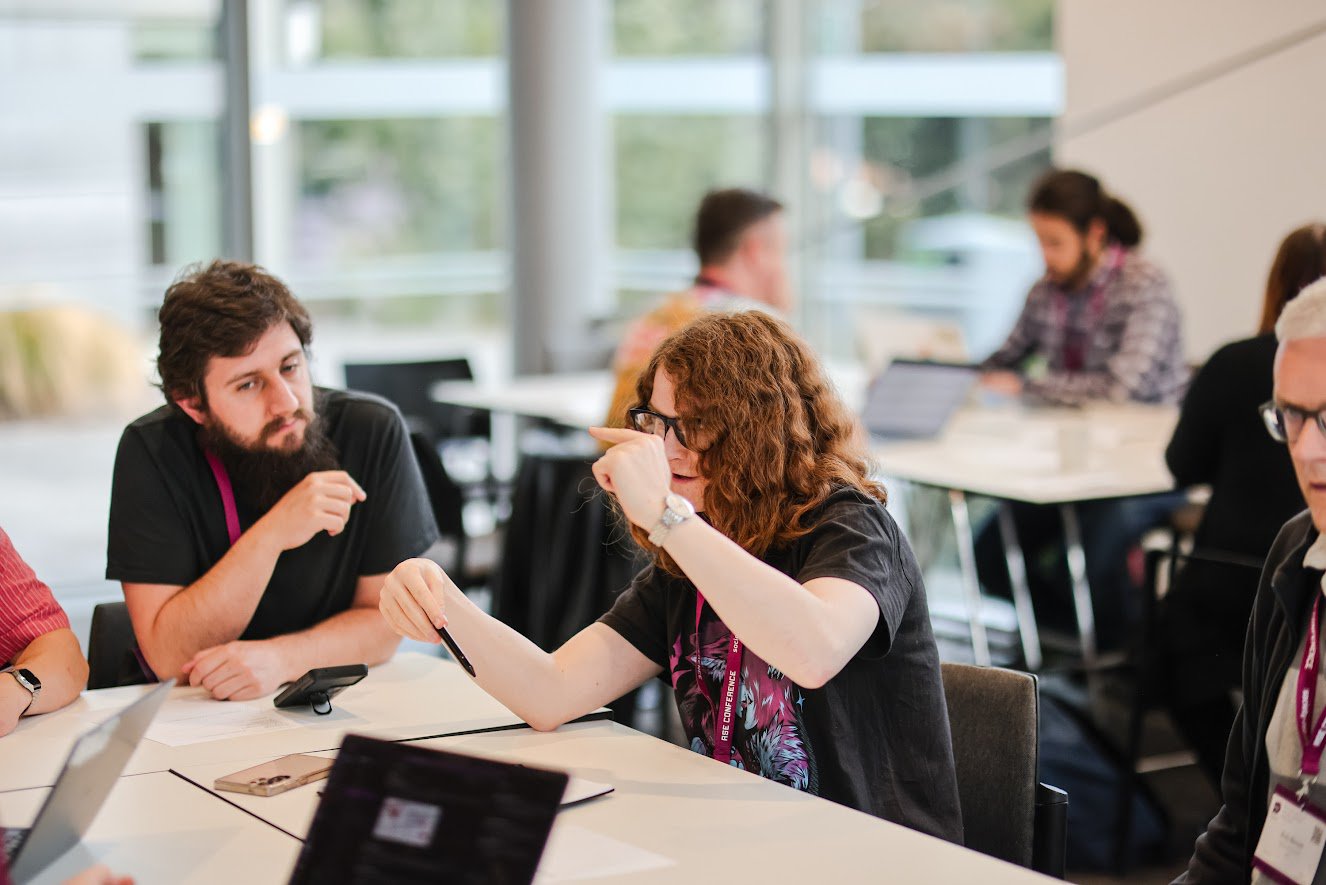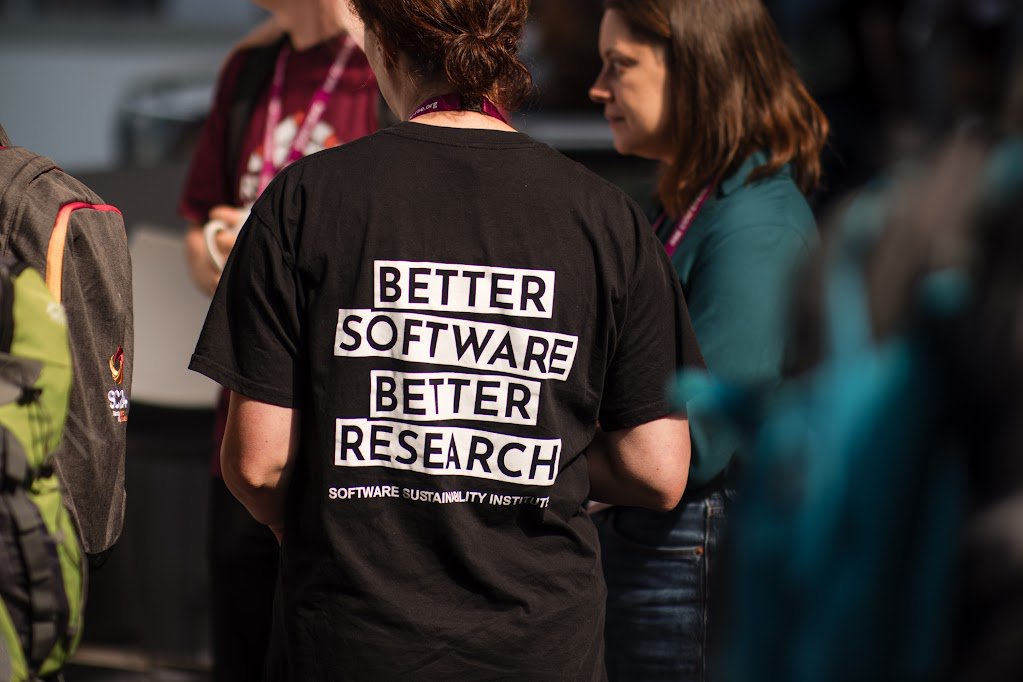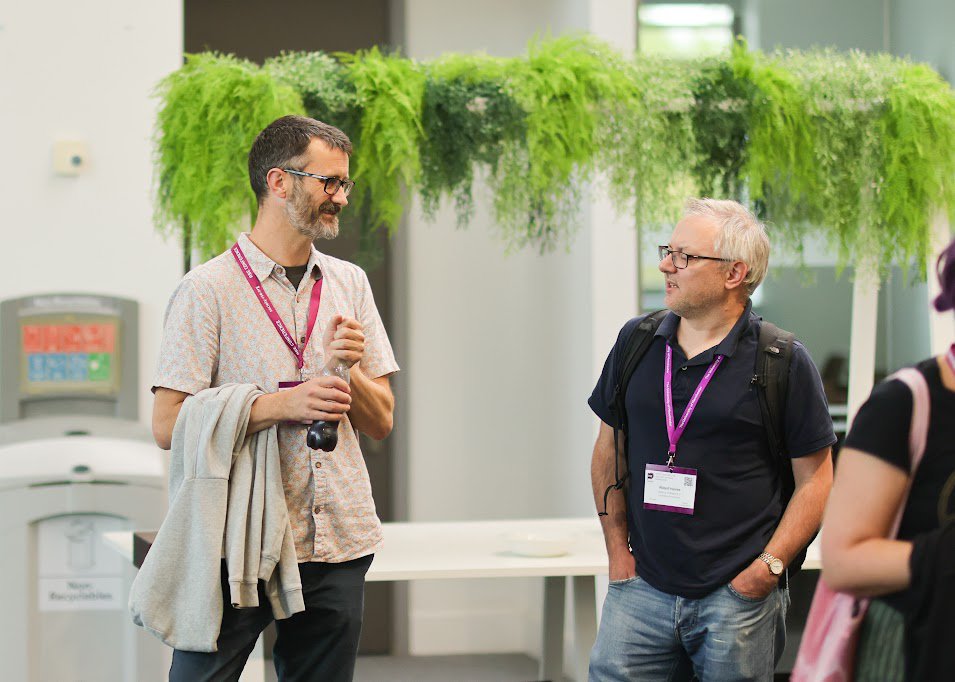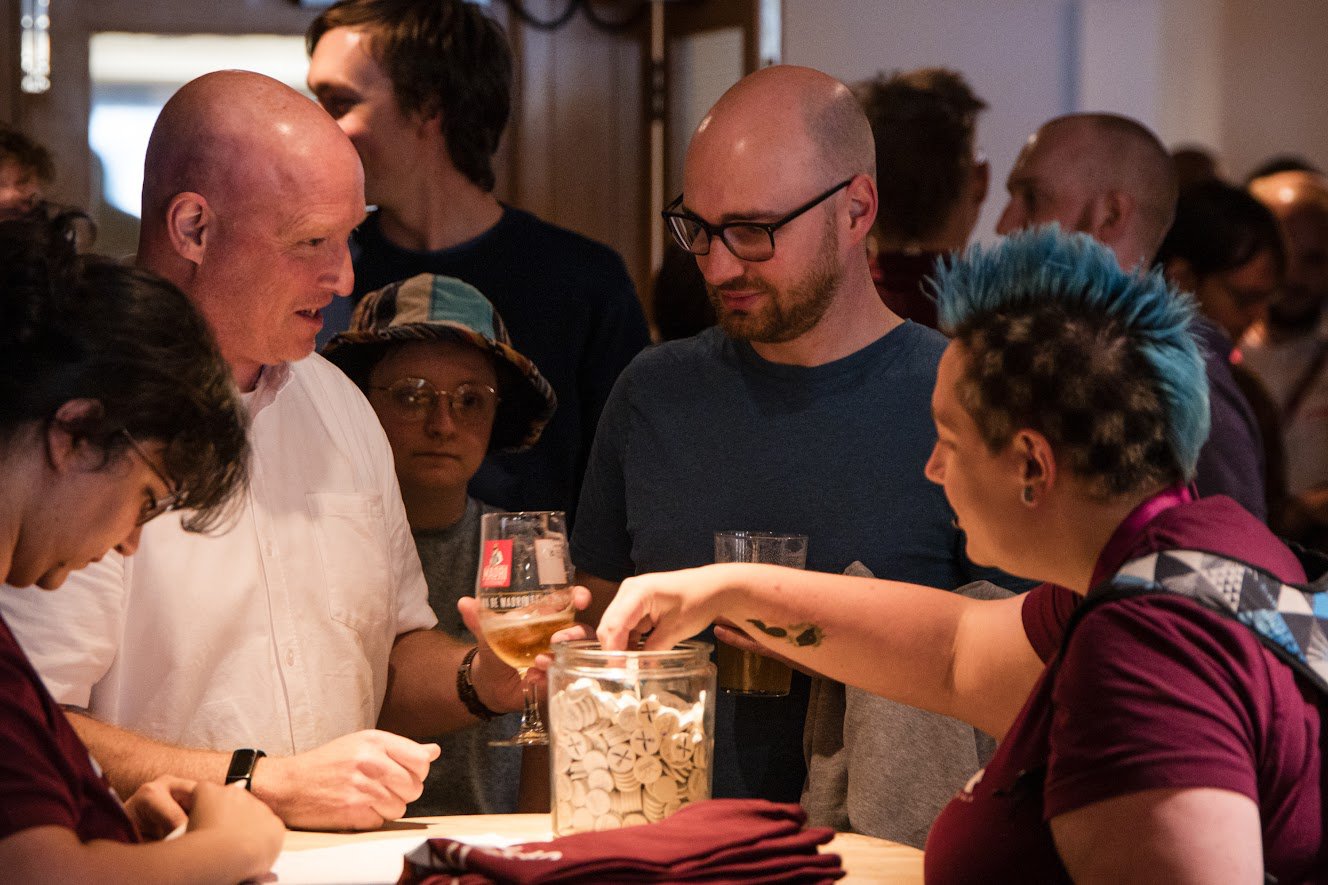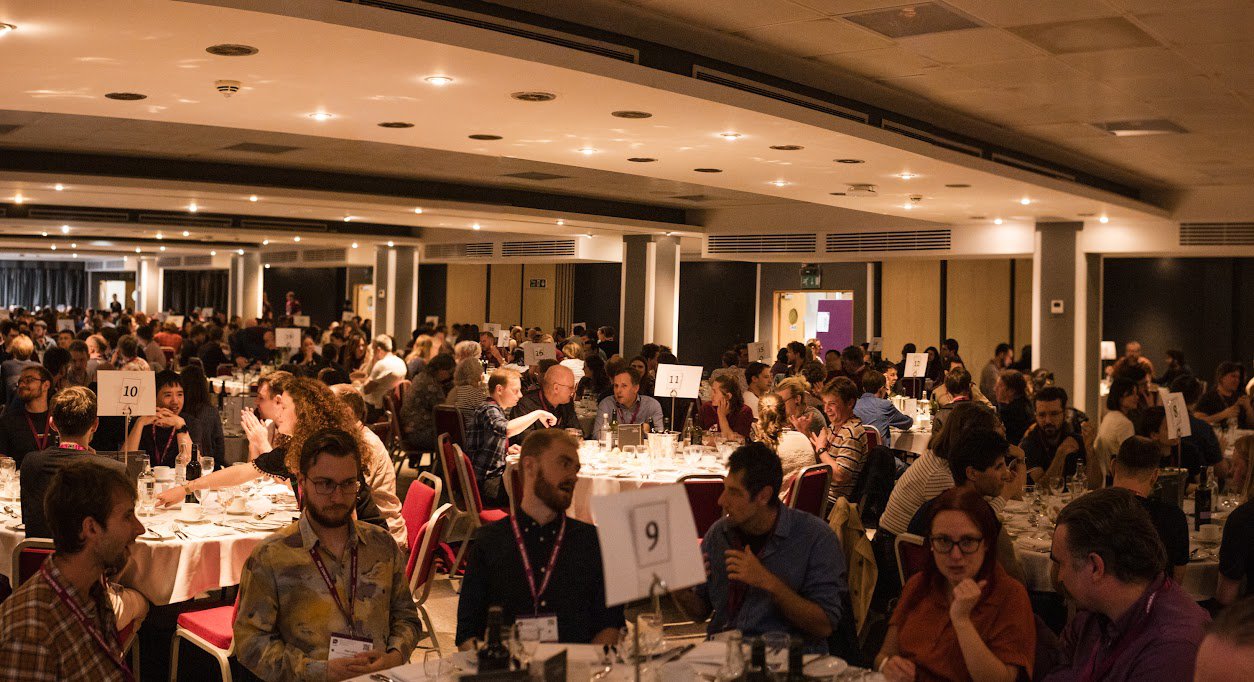An Inspiring and Impactful Conference
RSECon25 was built around two themes: RSE and Research Excellence, and RSE as Digital Research Infrastructure (DRI). These themes demonstrated the vital role RSEs play in enabling research, not just through technical skill but also through sustainable software practices and infrastructure development.
The University’s team, one of the largest RSE groups in the UK, actively contributed to the conference’s vibrant programme of talks, workshops, and community sessions. Their presence, both in person and remotely, highlighted the University’s commitment to high-quality, collaborative research software development—an ethos that has shaped the team’s work for over a decade.
Highlights from the Conference
- Green RSE Initiatives: The Manchester team engaged with the Green RSE Special Interest Group’s session, which focused on sustainable software practices and energy-efficient computing.
- Accessibility: Head of Research Software Engineering, Adrian Harwood, highlighted that "accessibility testing and compliance into our engineering process is a current priority. To that end, a good number of our team attended the accessibility testing hands-on workshop at the conference to learn more about how to use the WAVE browser plug-in. The session was co-organised by embedded Manchester RSEs and was an interesting and useful experience."
- Community Building: With a strong emphasis on inclusivity and accessibility, RSECon25 provided a platform for emerging voices and diverse perspectives. The Manchester team connected with new collaborators and shared insights from their own projects and practices. Research Software Engineer, Andrew Rowley said "Discussions included various topics from the writing of a vision statement for the Research Software Community to the development of a framework to identify and classify the diverse skills of Research Software Engineers."
Research Software Engineer, Louise Lever shared that "It was encouraging to see mental health front and centre at the conference, with an excellent session that addressed many aspects of being a Research Software Engineer. Acknowledging the stresses of many-faceted work tasks was helpful, and it also highlighted how that fits within an increasingly hostile environment outside of the workplace." - Technical Deep Dives: From HPC strategies to software testing methodologies, the conference offered a rich array of sessions that helped attendees sharpen their skills and explore new tools. Andrew Rowley comments "Some sessions were immediately relevant to ongoing projects within the team, including the use of existing University High Performance Computing resources to process personally identifiable data without compromising the security of subjects."
- Manchester’s Operational Management Tool: Adrian Harwood, and Senior RSE Phil Bradbury, presented the Manchester group’s in-house operational management tool “CapX” in the Wednesday afternoon session. This tool has been in development for three years, and has been a vital resource for managing the team’s considerable and varied workload. RSE leaders from both York and Durham are due to adopt the tool, collaborating with the Manchester group to make it open-source over the coming months.
Looking Ahead
As the RSE community continues to grow, events like RSECon25 are essential for fostering collaboration, sharing knowledge, and advocating for the recognition of software as a cornerstone of research. The University of Manchester’s RSE team left Warwick inspired and energised—ready to apply new ideas and strengthen their role in UK research.
A Selection of Conference Photos
